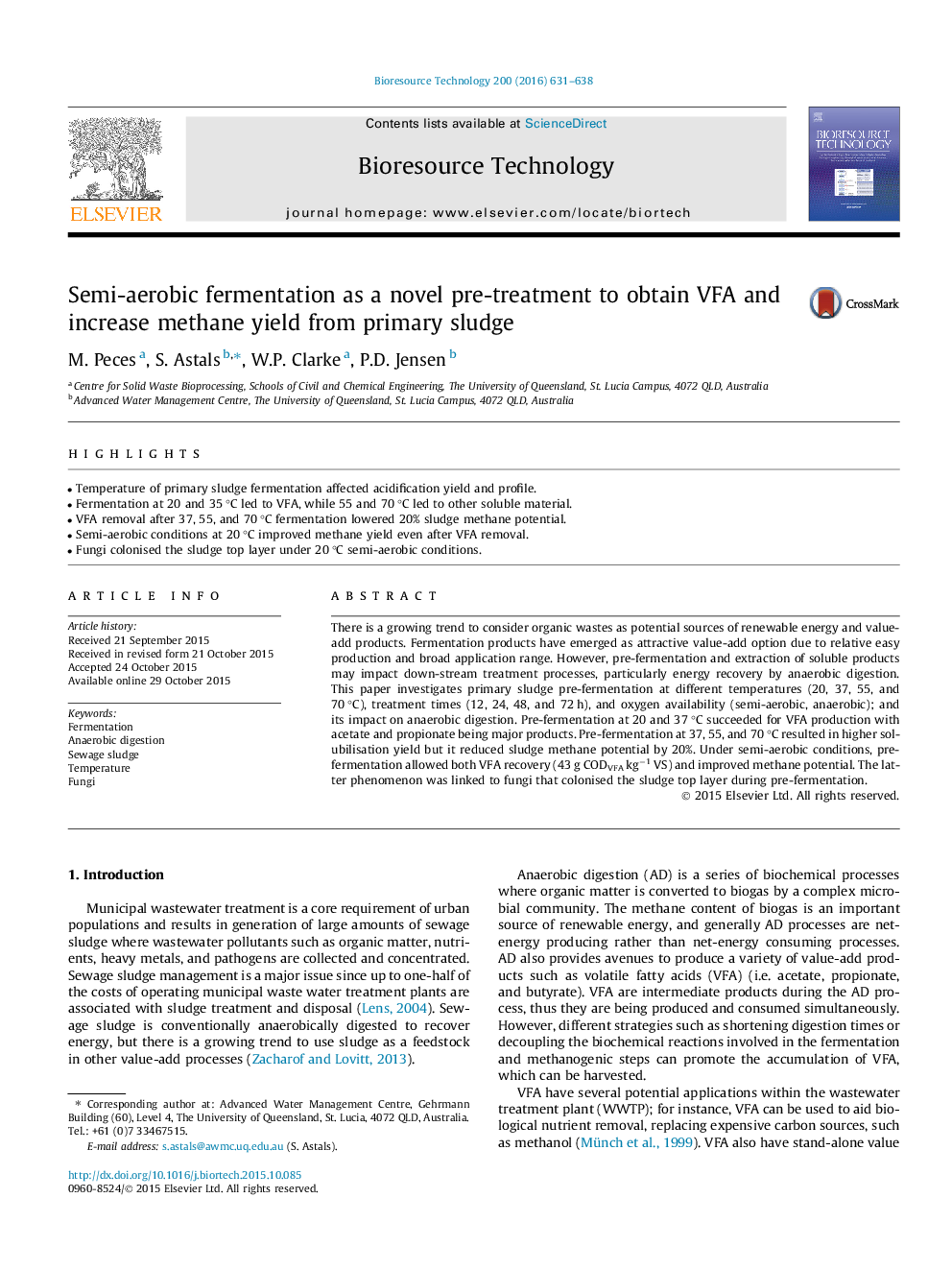| Article ID | Journal | Published Year | Pages | File Type |
|---|---|---|---|---|
| 7072724 | Bioresource Technology | 2016 | 8 Pages |
Abstract
There is a growing trend to consider organic wastes as potential sources of renewable energy and value-add products. Fermentation products have emerged as attractive value-add option due to relative easy production and broad application range. However, pre-fermentation and extraction of soluble products may impact down-stream treatment processes, particularly energy recovery by anaerobic digestion. This paper investigates primary sludge pre-fermentation at different temperatures (20, 37, 55, and 70 °C), treatment times (12, 24, 48, and 72 h), and oxygen availability (semi-aerobic, anaerobic); and its impact on anaerobic digestion. Pre-fermentation at 20 and 37 °C succeeded for VFA production with acetate and propionate being major products. Pre-fermentation at 37, 55, and 70 °C resulted in higher solubilisation yield but it reduced sludge methane potential by 20%. Under semi-aerobic conditions, pre-fermentation allowed both VFA recovery (43 g CODVFA kgâ1 VS) and improved methane potential. The latter phenomenon was linked to fungi that colonised the sludge top layer during pre-fermentation.
Related Topics
Physical Sciences and Engineering
Chemical Engineering
Process Chemistry and Technology
Authors
M. Peces, S. Astals, W.P. Clarke, P.D. Jensen,
